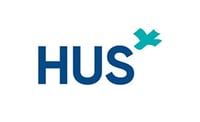Deep understanding of manufacturing, forestry, bioenergy & recycling, food & beverage and service operations. We know your industry's specific challenges and reporting needs.

Make your data a driver of growth and profitability
We plan, build, and run a centralised data foundation — so teams across your organisation work from the same numbers and make informed decisions every day.
- Centralised data, reporting, and analytics
- Built on Microsoft Fabric with Power BI
- Integrated data agents and AI/ML models
Trusted by organisations that rely on data every day | 30+ years of industry expertise













We guide you through each phase: strategy, planning, design, build, and support — for a robust, future-proof analytics environment.
Get solutions, integrations, and reporting tailored to your needs, using your own Microsoft Fabric environment — never a generic setup.
Best practices in lakehouse architecture, data warehousing, and analytics accelerate results through proven, step-by-step delivery.
Your data and analytics infrastructure evolves with your business, supporting continuous improvement and long-term reliability.
Success stories from our customers

Data should drive decisions, not create complexity
As organisations grow, data becomes more valuable — and harder to use. Information is spread across many systems, reports take too long, and decisions aren’t based on real-time insight. Teams want to work with modern data platforms, but lack the talent, time and capacity.
We believe every organisation deserves a clear, reliable view of its data.
Pinja’s Data & Intelligence offering addresses this directly. We create one reliable source of truth with standardised KPIs and a data foundation that supports advanced analytics and AI.
The impact:
- Faster, more reliable decisions
- Less manual reporting and fewer errors
- Clear visibility across the organisation
- A foundation for AI-driven improvement
From operational data to decision-ready analytics
We connect all relevant systems, model data correctly, and create Power BI reports — so everyone can make better operational decisions.
Data is collected from your existing operational and business systems such as ERP, MES, CRM, HR, files, and web sources.
All data is brought into a central Fabric OneLake, which acts as the shared data foundation. Data is ingested using shortcuts, data pipelines, and notebooks, then stored in a structured lakehouse model with Bronze, Silver, and Gold layers.
On top of this analytic data, data models apply business logic, KPIs, and calculations. Teams consume the data through Power BI dashboards, reports, and analytics, gaining a consistent view across operations and management.
Data analytics environments tailored to your business
Strategy and roadmap for Data, AI, and BI
We facilitate workshops to develop your strategy and roadmap for Data, AI, and BI. We audit your current data architecture, assess your state, and define the path forward to maximize the value of your data.
Defining reports and metrics
Through facilitated workshops, we work with your team to define the reports, indicators, and metrics that matter most. The result is a roadmap for reporting tailored to your business needs.
Modern data lakehouses and warehouses
We model and implement modern data lakehouses or warehouses, integrated with AI/ML models and Power BI dashboards. Built on Microsoft Fabric, your solution is ready to scale and evolve.
Power BI dashboards and visualization
We design and implement Power BI dashboards that transform raw data into visual insights. Track real-time KPIs across supply chain, production, finance, and HR, — with the ability to drill down to root causes.
Integrated data agents and AI & Machine Learning models
We deploy data agents and develop AI/ML models for predictive analytics. Ready-made solutions include pricing optimisation, inventory management, sales forecasting, and predictive maintenance.
Ongoing services and support
We provide ongoing support for your data warehouse and reporting solution. Ready-made modules for integration monitoring and data validation ensure high-quality reporting and ease of maintenance.
How we work with you
We plan, build, and run a centralised analytics environment that turns scattered, hard-to-use data into a clear, reliable view of your entire business. This is a consulting-led, project-based service delivered by our team of 100+ trained Microsoft Fabric experts on a time and material basis.
Strategy and roadmap for Data, AI, and BI
We facilitate workshops to develop your strategy and roadmap for Data, AI, and BI development.
We audit your current data architecture and work with you to define reports and metrics that drive your business forward.
Modern data lakehouses and Power BI dashboards
We model and implement modern data lakehouses or warehouses with integrated AI/ML models, data agents and Power BI dashboards.
We build new or migrate old solutions to the Fabric data platform and also develop solutions for both Azure and on-premise environments.
Ready-made AI solutions are available for pricing, inventory management, and sales forecasting.
Ongoing services and support
We provide ongoing support for both your data warehouse and reporting solution.
Ready-made modules are available for monitoring, integrations, and data validation to help you maintain and expand your capabilities.

Why data-driven organisations choose Pinja
Our expertise goes beyond technical implementation—we help you harness data strategically across production, finance, HR, and management for maximum business impact.
Our large team of trained Microsoft Fabric specialists ensures your solution is built with best practices.
We build solutions in sensible steps that make it easy to expand. Your data platform grows with your business needs, today and in the future.
Key capabilities
Single, up-to-date source of truth that provides one shared, always current view of your data across the organisation.
Data from multiple source systems is modelled into a unified structure for consistent analysis, reporting in Power BI and for data agents.
Use your data across teams and industries
- Services
- Manufacturing
- Wood & Forestry
- Food & Beverage
- Bioenergy & Recycling
Pinja Services Cloud
Maximise customer satisfaction and profit through seamless, data-driven service operations.

Pinja Manufacturing Cloud
Optimise production planning, capacity, and delivery reliability across complex multi-stage manufacturing.
.webp?width=1080&height=720&name=engineer-using-tablet-check-control-automation-robot-arms-machine%20(1).webp)
Pinja Wood & Forestry Cloud
From sawmills to wood processors, maximise profit and economic strength across your entire wood value chain.

Pinja Food & Beverage Cloud
Achieve high delivery reliability in fast-moving food and beverage operations.

Pinja Bioenergy & Recycling Cloud
Maximise profit and operational capacity across your entire material and fuel supply chain.

Explore our latest blogs, guides and webinars
-
All
-
Blogs
-
Guides

Read the blog →
Read the blog
Read the blog →
Read the blog
Read the blog →
Read the blog
Read the blog →
Read the blog
Read the blog→
Read the blog
Read the blog →
Read the blog
Read the blog →
Read the blog
Download guide →
Download guide
Download guide →
Download guideSpeak directly with an industry specialist
Book time with Eeva-Maria Paavola for a brief, high-impact discussion on transforming your data into a strategic asset.
Whether you’re dealing with fragmented systems, unreliable reporting, or outdated data infrastructure, we can show you how a modern analytics platform creates measurable business value.

Eeva-Maria Paavola
eeva-maria.paavola@pinja.com
Schedule a chat with Eeva-Maria